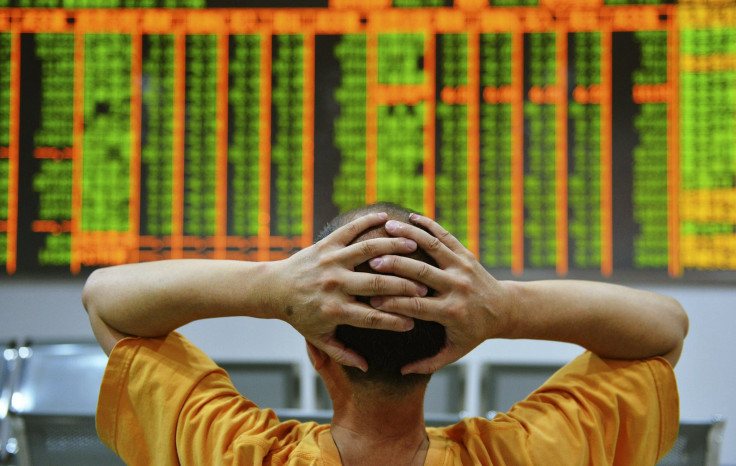China Stock Markets Open With Losses On Shanghai, Shenzhen Exchanges

The markets watched with bated breath as China's stock markets opened on Monday, as the CSI300, which measures 300 stocks traded on both the Shanghai and Shenzhen stock exchanges, opened at 3,303.12, down 1.7 percent from its 3,361.56 closing rate on Friday. The Shanghai Composite Index opened at 3,186.41, down 1.7 percent from its 3,186.41 closing rate. The Shenzhen Component Index, by comparison, opened at 1,934.42, down 2.2 percent from Friday's 1,978.72 rate.
The opening follows a calamitous trading day Thursday, when trading was halted after just 15 minutes. The CSI300 dropped by 5 percent a few minutes after the opening bell, causing the "circuit breaker" to trip and let the markets cool off before attempting to restart. Soon after the break, the index dropped by 7 percent, halting trading for the rest of the day.
The crash was the second day in 2016 that the circuit breaker was tripped to the point that trading was halted for the entire day. The circuit breaker was then suspended to avoid panic in the markets.
Market negativity toward China's economy is being fueled by fears that growth in the country is slow. "This is a tsunami of negative psychology being driven by China," Phil Orlando, chief equity market strategist at Federated Investors in New York, told Reuters on Sunday. "There is nothing we can do except step back, hunker down and wait for the carnage to play out."
London hedge fund Omni Partners told Bloomberg on Sunday that it saw the yuan falling by 15 percent in 2016, but it could fall even further if fears of a major credit crisis materialize. The yuan hit 6.59 to the dollar last week, a five-year low.
“While Chinese authorities have been intervening heavily in the dollar-yuan market, they cannot ultimately fight economic fundamentals,” Chris Morrison, head of strategy of Omni’s macro fund, told Bloomberg on Sunday. The yuan could drop to 7.5 to the dollar, but even that would be too high if a crisis hit. Morrison said the world could see 10 yuan to the dollar in a serious situation.
A shock devaluation in August of over 2 percent sent ripples through the markets. Capital leaving the country led to China's first year-over-year drop in foreign exchange reserves.
There is concern in some quarters that the Chinese government's fumbles in trying to control the currency will undermine confidence in Beijing's handle on its economic policies.
The fears surrounding China are feeding into U.S. investor attitudes. Following the shock devaluation, the Dow Jones Industrial Average dropped by 531 points, the worst loss since 2011.
This investor fear remains despite an otherwise stable U.S. economy. The Bureau of Labor Statistics released a strong economy report on Friday that showed 292,000 more jobs on the books in December. Nonetheless, fears about the stability of the world's second-largest economy are clouding U.S. investment. A stabilization in the Chinese economy may be what's needed to strengthen investor confidence on the other side of the Pacific.
© Copyright IBTimes 2024. All rights reserved.






















